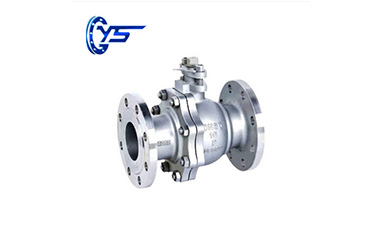Industrial ball valve supplier to share this article for you.
It is very important to master the basic knowledge of industrial performance requirements related to valves. It will make it easier for you to choose valves. It is recommended to keep the following five points in mind before starting to select a valve:
1. Valve size and type
It should be pointed out that valves in industrial equipment installations have to perform multiple functions: including cut off the flow, transfer flow, mixed flow, pressure relief, prevent backflow, and adjust flow. For example, in a water supply pipeline, a shut-off valve is used to control the flow of water. For 16-inch pipelines, use full-line size butterfly valves. The maximum speed through the valve is usually limited to 12 feet per second and should not exceed 20 feet per second.
2. Manufacturing materials
Before making valve selection, pay attention to the chemical compatibility requirements of industrial equipment. The material used to make the valve should be compatible with the gas and other media flowing through it. For example, valves made of copper alloys are a popular choice for oil and gas production. Plastic valves generally resist corrosion and chemical corrosion better than metal valves.
In a survey of valve users, it was found that 80% of users chose corrosion-resistant materials, such as stainless steel (27.2%), brass or bronze (24.1%), or plastic (18.2%).

Flange Ball Valve
3. Performance requirements
In industries that produce high temperatures and pressures, metal alloys are usually recommended. Metal valves are also most suitable for pressurized gas.
4. Check valve has special requirements
Forged steel check valve most of the time can operate normally as expected. However, it is still recommended to check its response time and the opening pressure required to open the valve.
Certain types of check valves require positive downstream pressure to open. These are usually called closed check valves. The second type requires positive back pressure when closed, and is called open check valves. Proper selection between the two according to industrial requirements can improve the reliability of the check valve.
5. Maintenance
Frequent maintenance must be carried out on valves operating in industrial equipment. This is very important for valve reliability and application stability.
For example, Flange Ball Valve can prevent clogging. But at the same time, they are not suitable for regulating flow. Using a ball valve to control flow can cause leakage or premature failure. The type of valve connection affects the function of the system and process. Each connection type has its own advantages and disadvantages.
Copyright © Hebei Yaosheng IM & EX Trading Co.,Ltd. All Rights Reserved |Sitemap | Technical Support: 
